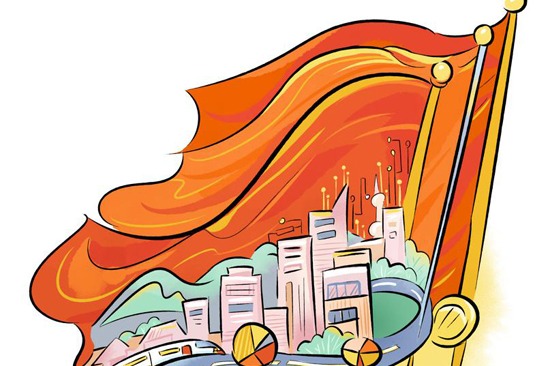Bills to pay
Western countries have accountability for their historical emissions they must shoulder for the good of people and planet


The current times require intensely working together to address common challenges, by identifying and implementing shared, coordinated and equitable responses. This requires vision, dialogue, mutual understanding, and a profound awareness of our common global responsibilities. We also need to look beyond the COVID-19 crisis, toward a rapid economic recovery that addresses people's needs. This implies a focus on reducing inequalities, on women's empowerment, on the younger generations and on protecting the most vulnerable. It means promoting the creation of new jobs, social protection and food security. This was the message from the 2021 G20 Summit held last weekend in Rome.
The G20 forum is definitely more representative of humanity and the world economy than the meetings of the leaders of rich countries, the G7, which focus mainly on their own interests, or the BRICS group, whose members have little in common. The G20-or more precisely the G43, because it includes 19 countries plus the European Union, which, apart from the three largest countries already included in the group, Germany, France and Italy, includes 24 other countries-h(huán)as become an additional, apart from international organizations, mechanism for global policy coordination. Such coordination in the face of a volatile world is especially needed. As always, the expectations for the summit were enormous, and it delivered-also as always-less than anticipated. However, the little it has delivered is of importance.
The G20, whose rotating host country this time was Italy, was held under the slogan 3P: People, Planet, Prosperity. Although a seemingly minor decision, the summit's resolution to apply a minimum taxation of company profits at the level of 15 percent is noteworthy. This should stop the development-damaging race to the bottom tax competition. Much more important, however, was the decision to provide less developed countries, especially the poorest, with COVID-19 vaccines free of charge. China has done this already, without the blessing of the other G20 members, and more than any other country. Let us recall here that it was President Xi Jinping, who, more than a year ago-when no vaccines had been developed-was the first to say that the vaccines must be a global public good. It is a pity that the action, which requires good coordination on a global scale, did not start earlier and has not moved faster.
In the third decade of the 21st century, it is already obvious that the greatest existential threat to humanity is climate change, largely caused by human economic activity. This aspect of the summit, headed in a pragmatic manner by Italian Prime Minister Mario Draghi, was the most important. The more so as the participants of the G20 meeting went directly from Rome to the United Nations conference on climate change, COP 26, in Glasgow, Scotland. Correct targeting of actions to counteract the continuation of disastrous climate trends requires not only knowledge of what can be done on the technological side to accelerate the shift to renewable sources of energy, but also a strong political commitment to act and clear decisions about who and to what extent is responsible for the current state of affairs. The distribution of the costs of actions to be undertaken in the following years by individual countries and by integration groups must be based on this assessment. Not the one who currently is, but the one who was in the past the greatest polluter should bear the greatest burden for the fight to limit the global temperature rise.
Most often, the answer is deceptive-and at the same time highly politicizing-that the worst contributor to the climate crisis is the one who emits the most greenhouse gases, especially carbon dioxide. And it is known that China is currently the largest emitter of carbon dioxide, so attempts are being made to direct world public opinion against it. This, which is by no means conducive to inclusive globalization, makes the mood of Sinophobia even stronger in certain countries. Yes, China sends into the atmosphere about 28 percent of the total volume of global CO2 emissions, twice as much as the United States, which emits about 15 percent, but per capita, which is a more appropriate measure, the Chinese release just half of what people in the US do, respectively 8.1 and 15.5 metric tons annually. Fairness requires an answer not only to the question who is emitting how much in 2021, but also who has released how much altogether so far. It is not difficult to identify who are the main culprits for our predicament. It is the richest economies of the West, with the US at the forefront. Starting the counting from 1750, China's entire emissions of CO2, huge amounts of which still exist in the atmosphere surrounding the Earth, contributing to its heating, amounts to 13.7 percent, while the US' historical contribution to this global furnace is almost twice this, as much as 25.5 percent. The countries of the European Union plus the United Kingdom, account for 22.7 percent, India 3.2 percent, Africa 2.9 percent and South America 2.6 percent. The sinking islands of Oceania only 1.2 percent.
When one looks at the issue from this perspective, it is hardly surprising that poorer countries request greater sacrifice from the wealthy of this world. Historical bills must be paid fairly, without demanding that the skinny ones now tighten their belts on the same scale as the obese who consumed energy in the past without moderation. It is therefore not surprising that at the COP 26, Indian Prime Minister Narendra Modi declared his country's intention to achieve net zero carbon emissions only in 2070.President Xi proclaimed China would make effort to achieve carbon neutrality before 2060, while developed countries declared their target was by 2050, although they would attempt to achieve it earlier. Net zero represents a situation where greenhouse gases emitted to the atmosphere are counterbalanced by their removal. Further social pressure should therefore force not so much to shorten the period to reach net zero in all countries, but to accelerate the transition to such a desired state in the richest countries. After all, they have contributed the most to bringing us all to a verge of cataclysm.
The author is professor of economics at Kozminski University in Warsaw and distinguished professor of Belt and Road School at Beijing Normal University. The author contributed this article to China Watch, a think tank powered by China Daily. The views do not necessarily reflect those of China Daily.
Contact the editor at editor@chinawatch.cn

































